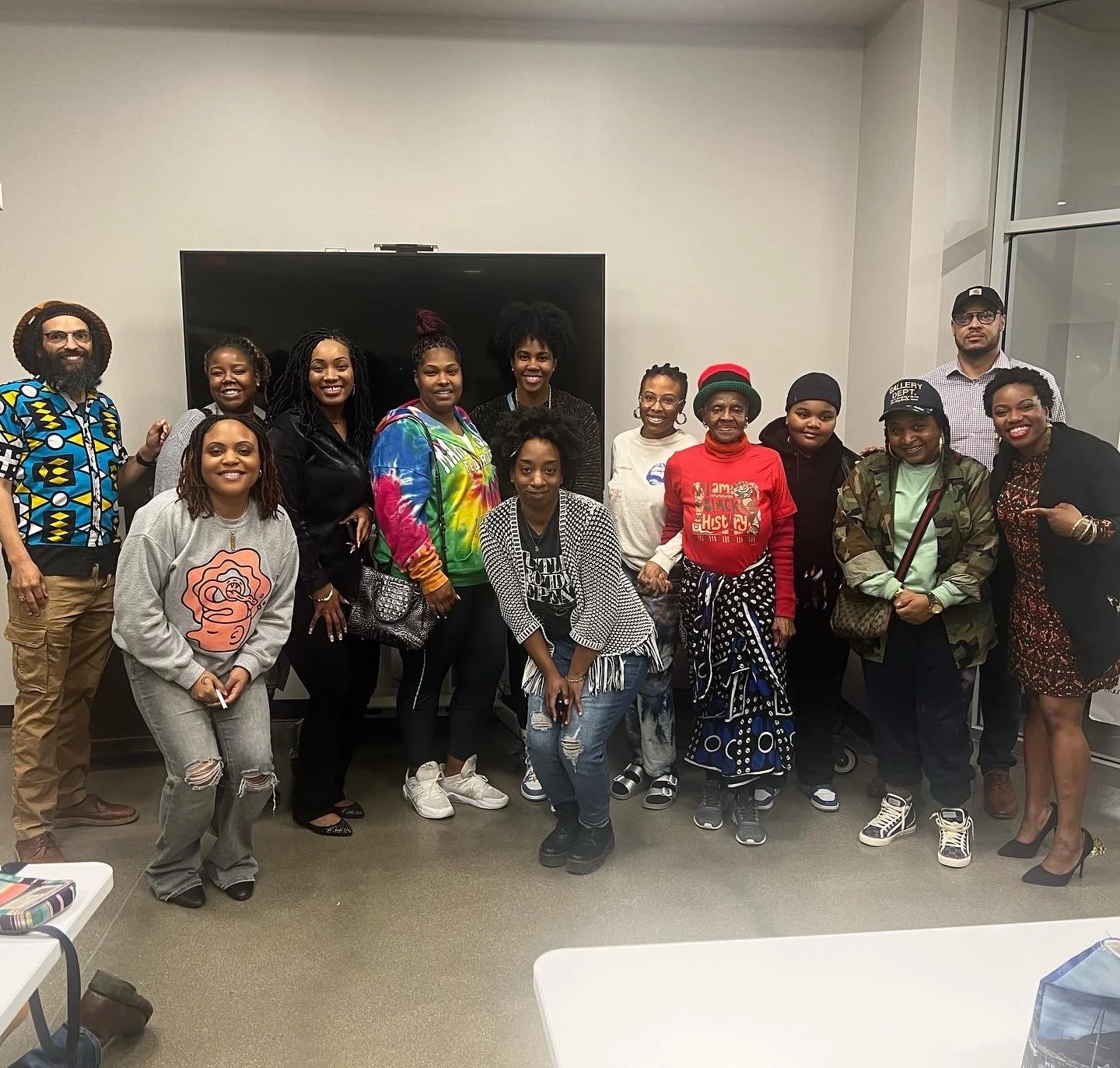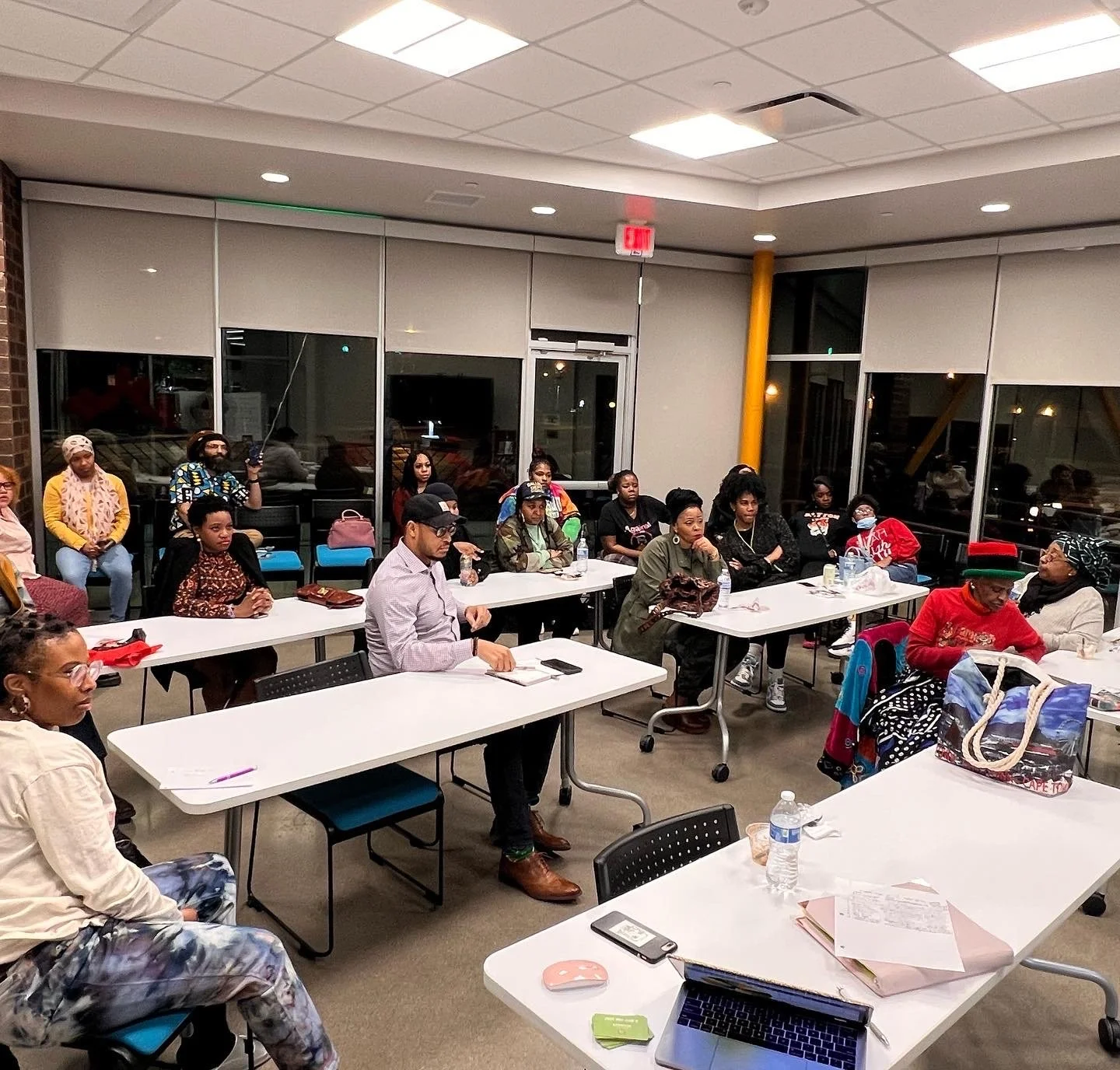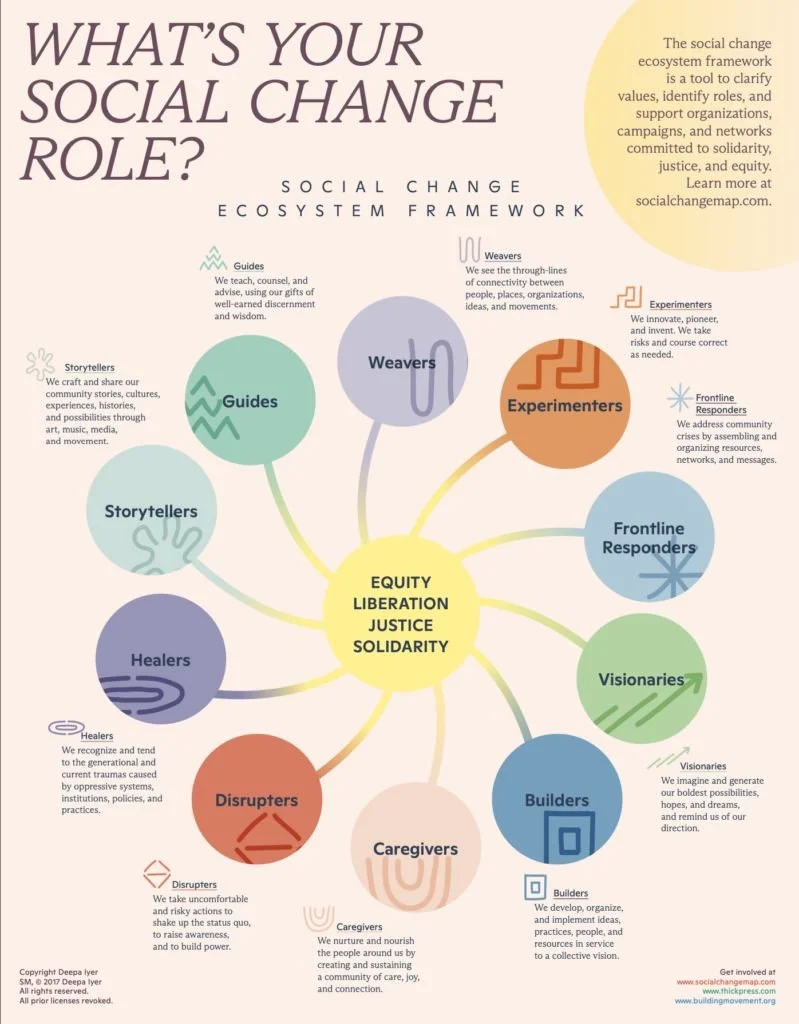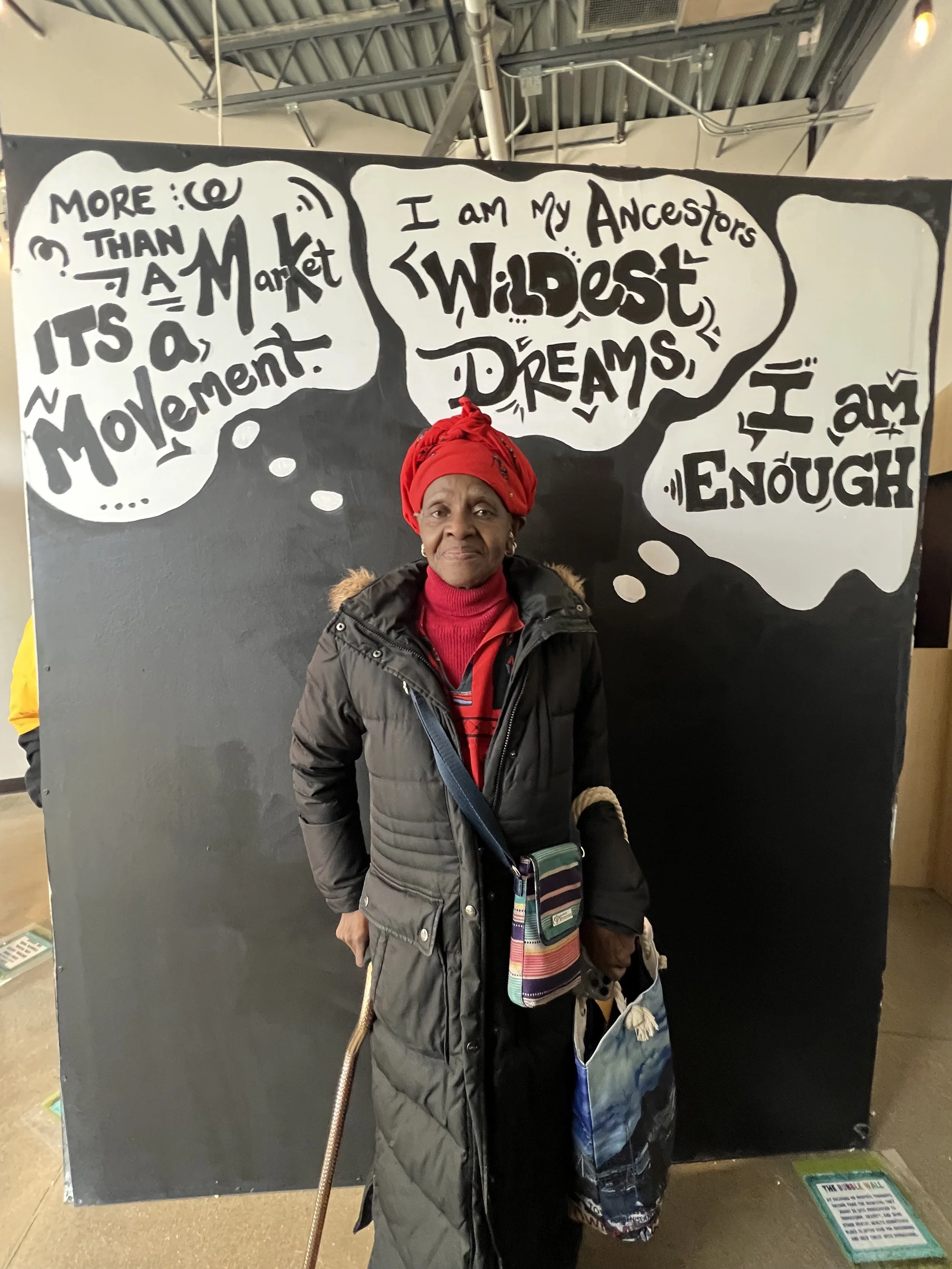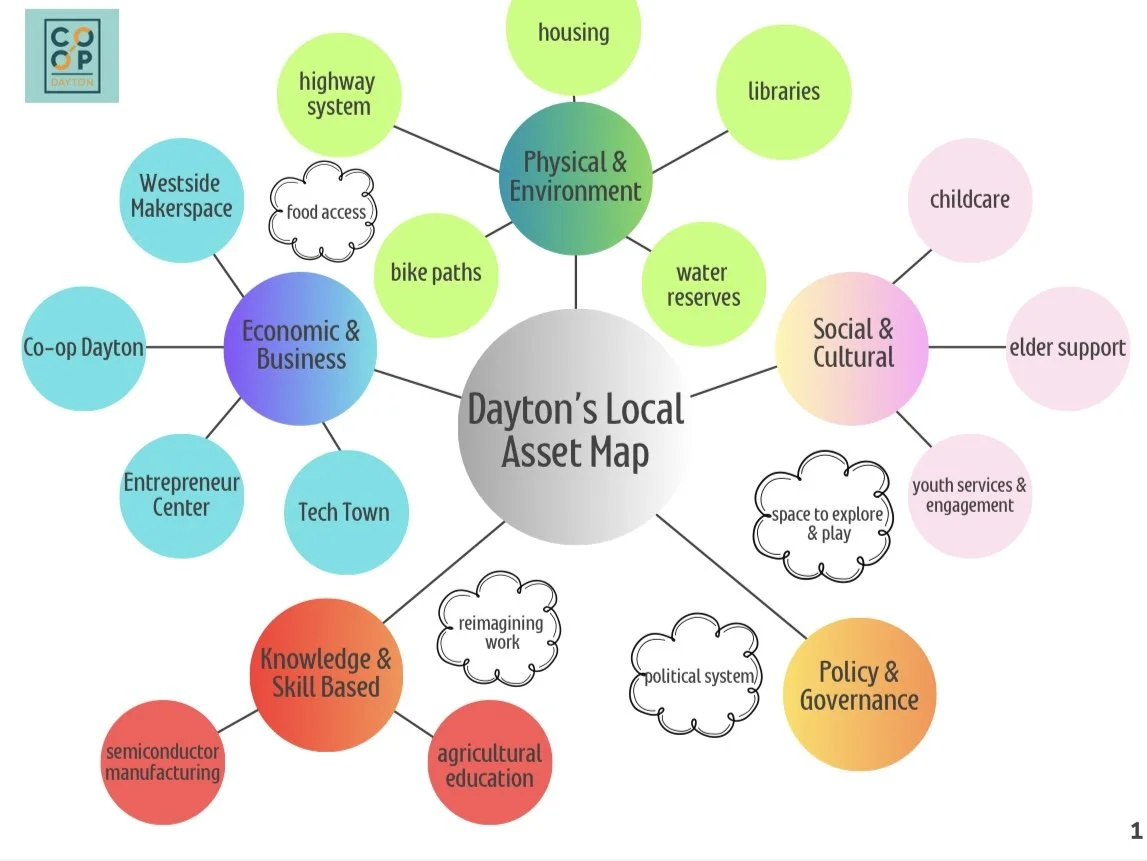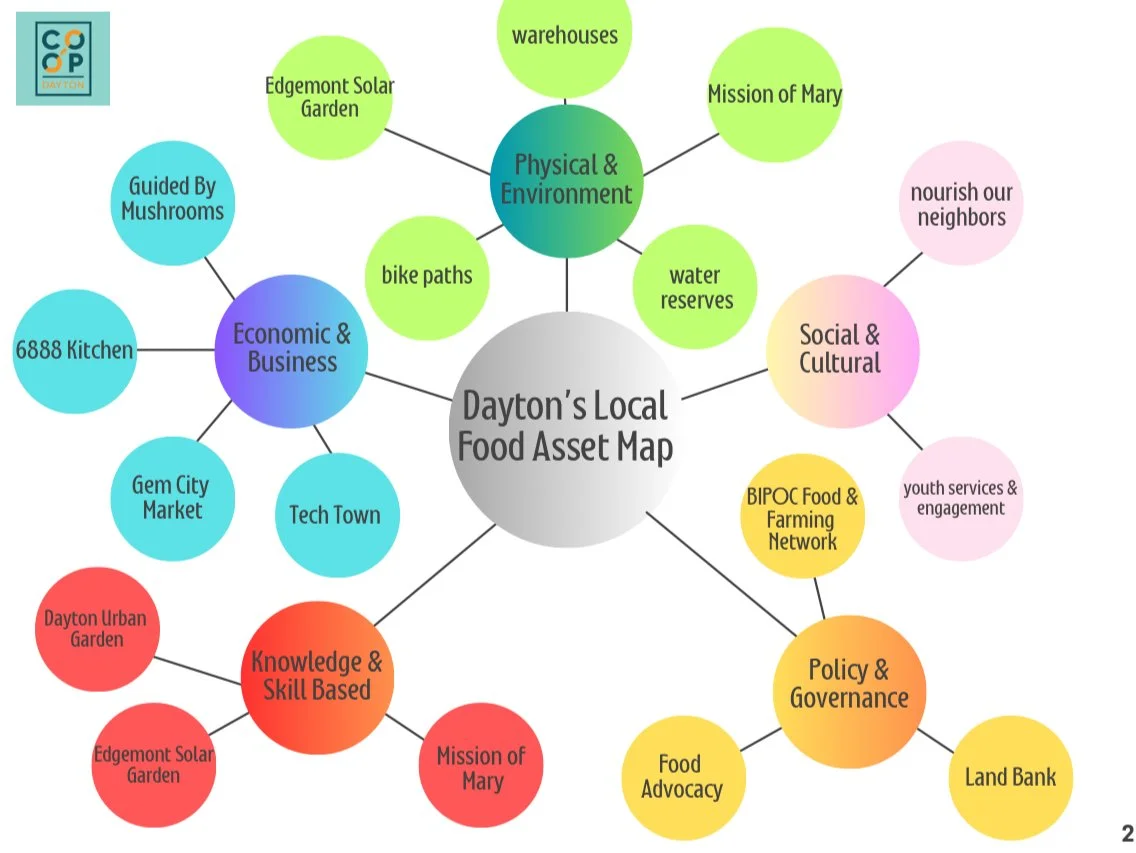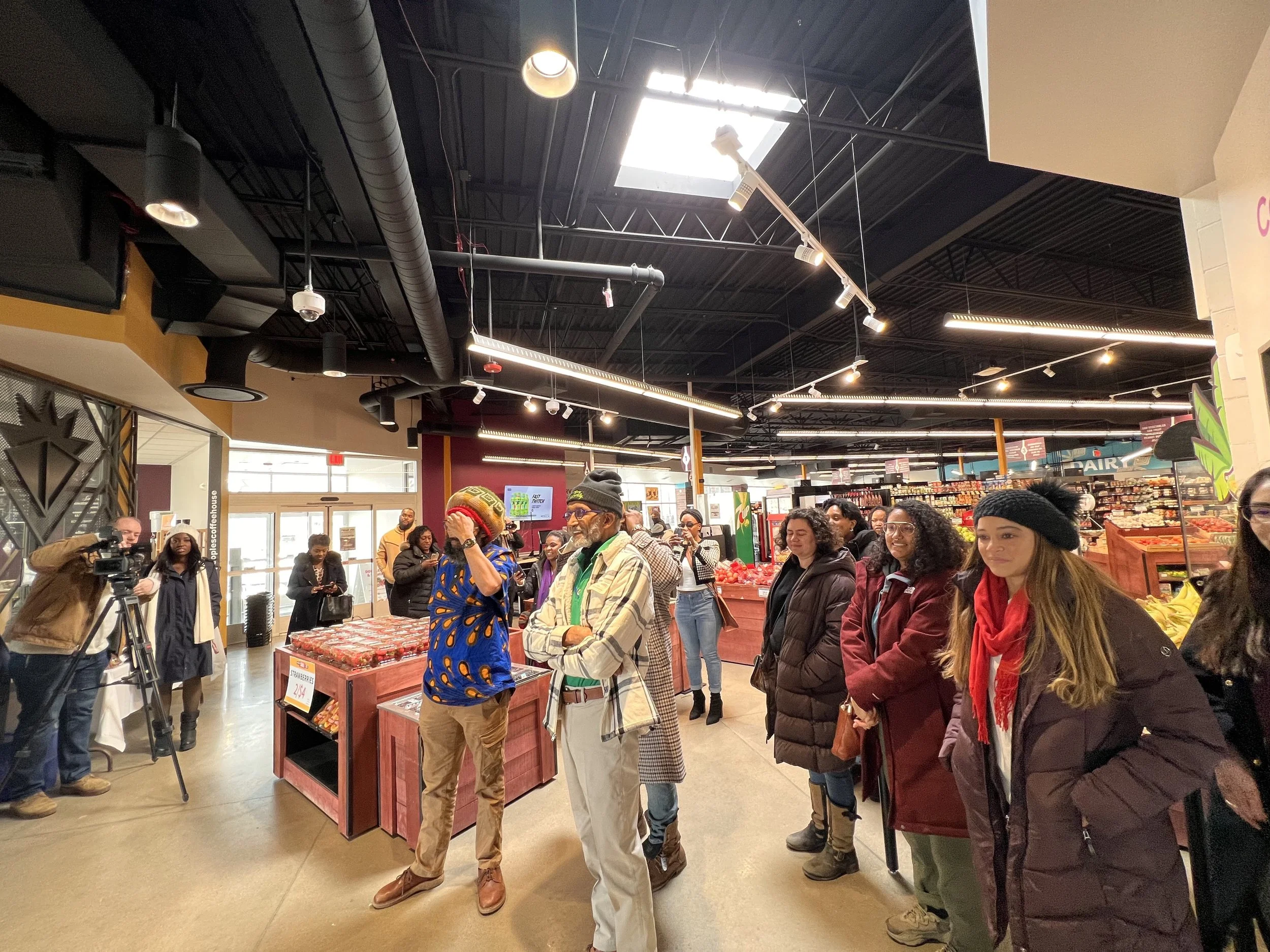TRANSFORMATION ACADEMY: Food Sovereignty Project
Taken at GEM City Market
Changing the Way Dayton Eats
The Food Sovereignty Project is a community driven effort to better understand and respond to local food scarcity by centering community voices to challenge the systems that created it. The project focuses on engaging residents in conversations about their personal experiences and collective relationships with food—how they access it, grow it, prepare it, and imagine a different future for it.
At it’s heart, the project encourages people to reconnect with food as a source of nourishment, identity and empowerment. Community gardening, urban farming, and mutual aid are not just alternatives; they are acts of resistance and reclamation.
Growing food, supporting local farmers, and sharing knowledge are key parts of this work.
About Dayton’s Food System
In Dayton, Ohio, food insecurity is a growing crisis. As of 2022, 14.6% of Montgomery County residents were food insecure- an increase from 12.4% the year before. This is not a coincidence, but a result of decades of disinvestment, redlining, and systemic neglect. Grocery stores have vanished. Transportation options are limited; and food banks, while vital, are not a long-term solution.
● 24.3% for children (2022) and 18.7 % for children (2021)
● Redlining and disinvestment has led to grocery stores leaving which ushered in small-box stores
to replace them, especially in West Dayton, which experiences a 30% food insecurity rate.
● Families are increasing their visits to food pantries and banks - between 5 to 6 times a week.
● Transportation is a barrier to access healthier food options
● Community owned grocers are filling the gaps - Gem City Market
● Existence of urban agriculture initiatives and policies through the City - Urban Agriculture
Grant, Urban Garden District, Dayton Urban Grown Cooperative, Homefull, BIPOC Food &
Farm Network, etc.
Importance of Roles
Everyone has a role to play in transforming the food system.
Whether you are a storyteller, healer, builder, guide, weaver, or caregiver, your actions matter!
This work calls for more than awareness—it demands participation, accountability, and solidaritiy.
Community Members learning importance of Roles
Description of Community Roles
Barriers & Issues
However, the path to food sovereignty is not without barriers.
Residents face challenges including limited land availability for growing food, environmental degradation, and systemic racial injustices. Inadequate transportation infrastructure and restrictive aid.
These are not isolated issues—they are deeply connected, and they require systemic solutions.
Barriers
● Land availability and quality - Land
Banks
● Transportation infrastructure
● Farm land loss/aging farmers
● Climate change/change in growing
seasons
Issues
● Environmental and racial justice
● Food affordability
● Restrictive food policy/program
funding
● Emergency food access > household
food self-sufficiency
Community Voices
Despite challenges, community voices are at the core of building solutions.
The project emphasizes the importance of not just listening to what residents are experiencing, but also creating space for them to share their hopes, ideas, and visions for a better food future.
These conversations have already sparked meaningful ideas around urban farming, food waste reduction, smart grocery shopping, and connecting with local faith groups and food networks.
“How do we take conscious control of our food system?”
Local Community Member
Solutions
Getting involved is not always simple—but it is necessary.
The good news is that change is already happening!
Become involved by exploring your local food assets, using tools like Dayton’s Local Food Asset Map that can be used to share ideas and build a more resilient food system.
Connect with community gardens, urban farms, and local food advocates.
Support or volunteer with organizations working on food access.
Small steps—whether composting at home, buying from local growers, or sharing knowledge—build momentum toward change.
●Introduction to various types of farming/gardening - hydroponics, aerogardens, food forests,
community supported agriculture, micro farming networks, etc.
● Classes on food preservation - canning, dehydrating, pickling
● Smart grocery shopping on a budget, or introduce bartering
● Raising livestock in an urban environment
● Prioritize generational learning - use children to teach or expose parents to growing/smarter
food habits, as well as the use of grandparents
● Connect churches to urban agriculture
● Food waste initiatives - composting for farms
● Policy creation surrounding vacant land reuse and ownership
Dayton’s Local Food Asset Map
The Food Sovereignty Project is a call to action. Reclaim your role. Step into your power. Help cultivate a food system rooted in justice, resilience, and community.

